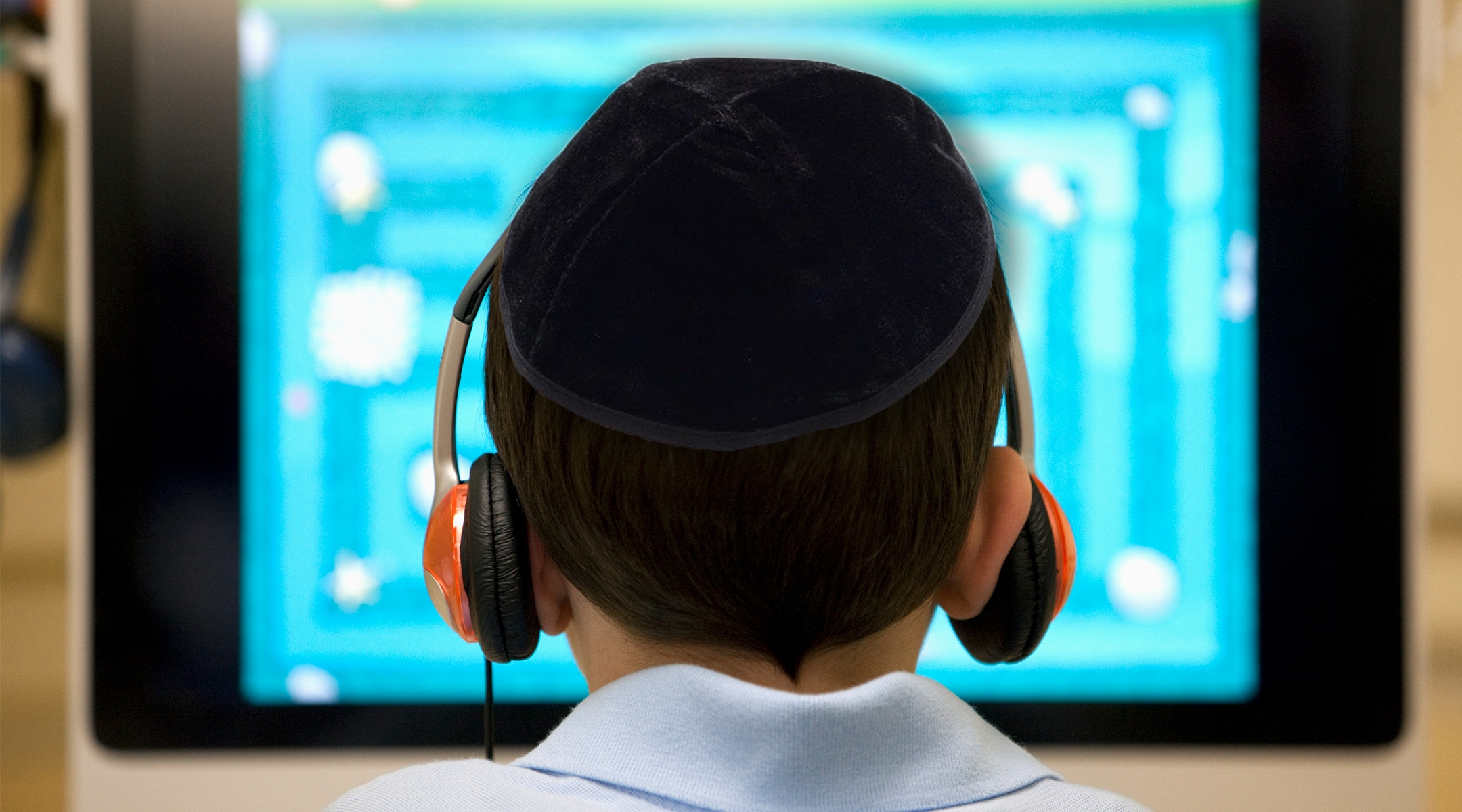WATERBURY, Conn. (JTA) — If there is a Jewish utopia today, the place where I live could be it. Waterbury has a unique mix of “black hat” yeshivish families and Modern Orthodox ones living side by side in a city with a suburban feel. Some men learn full-time, while others have professional jobs.
The community is small enough that most of us know each other. We have a meal delivery system set up for moms who give birth, new families who move into town and those who are ill. In fact, the community is so giving that if you don’t sign up to bring food within the first half hour after the email request goes out, most of the slots (if not all) will already be taken.
Unfortunately, our meal system has been suspended as we deal with the coronavirus, which has upended our way of life just as it has for people the world over. But so much about our close-knit community and its values have remained intact.
Last Sunday, the annual distribution of Passover food took place like always. Well, almost like always: The volunteers had to wear gloves and masks as they sorted orders and loaded food into cars and vans. Safety precautions limited the number of people who could pick up food at one time. Once it was my turn, it took less than 20 minutes to pick up my order. I drove away with matzah and grape juice and hope.
Since public schools are closed, through the National School Lunch program, all children aged 1-18 are eligible to receive a free breakfast and lunch regardless of their parents’ income. Community members, with the approval of government officials, have arranged for a kosher option. In a week filled with worry and anxiety, that first “school” lunch of pizza made my kids so happy. The small bit of normalcy in these turbulent times revives us.
We also have continued to devote ourselves to Torah learning. The schools have been remarkably adept at providing continued learning opportunities, and the structure and normalcy of class is just as helpful as the educational content.
Yet the switch to online learning has introduced some tension with the way we used to live. Like many of the families I know, our children have spent little time online up to now. We limited internet and social media exposure for our children because it tends to promote things that don’t mesh with our Torah life: social dating, inappropriate language and a focus on materialism as opposed to a connection to God. We don’t have a television because, as I explained to the kids, even if the TV show is OK, the commercials probably aren’t.
Prior to the coronavirus shutdown, we had very clear rules: Yes to email that parents can monitor, but no to a web browser and definitely no YouTube access. If my 15-year-old needed to use the internet for homework (something that happened at most for 15 minutes a week), my husband or I had to be in the room the entire time she used the internet-enabled computer. (Her personal laptop has no internet access.) Now she is online from 9 a.m. to 3 p.m. each day with a full slate of video classes.
It’s truly amazing what her school pulled together in such a short period of time and the level of continuity in scheduling and academics it has achieved. Unable to monitor my daughter for six hours straight, we decided to set up the laptop in the dining room since it is a public place in the house.
But apparently it’s too public. The noise level downstairs was not conducive to learning. Could she use the laptop in her room? A pregnant pause.
“With the door open,” I conceded.
“All the way open or just a crack?” she inquired.
There was another long pause as I considered how much time I spent upstairs and how often I would pass her room in the hallway.
“Mostly open.”
So far it’s worked. I do wonder, however, what our house rules will be when the school buildings reopen.
While my daughter’s school has always used computers, my son’s school has a different philosophy. In the world before COVID-19, teachers were not allowed to give students assignments that would require the use of the internet. Now his school is striking a balance by continuing with recorded classes. Each day I receive an email with the option of calling the designated number for the day’s Gemara shiur or using the emailed audio file.
Other teachers are emailing video lessons and worksheets. The benefit of the recordings becomes obvious when you consider that many families have four or more children. It’s just not feasible to have that many kids on the phone and/or computer at the same time. This way, each child gets a turn.
Since our small family doesn’t have that problem, I’ve signed up my son for additional online learning. Having had little experience with computers, he is slowly figuring it out. This morning he brought the laptop over to me.
“Mom, it won’t work because it says it needs something called Flash!” he said.
The technology changes are affecting me, too. The first Wednesday night after the schools closed, the weekly women’s shiur, or Torah class, took place via Zoom. My newsfeed and email inbox are flooded with announcements of religious video and phone conferences on a wide variety of topics: learning Talmud, reviewing mishnayot, parenting during these stressful times. You can now stream a variety of Jewish children’s entertainment online for free. One person I spoke to said this spreading of Torah is using technology “finally for the reason it was created.”
One day, school will resume with in-person classes. I am very conscious of the fact that any technology and internet permissions I give now will be very hard to roll back later. I pray that I make the right decisions, and that my children’s use of technology serves only to strengthen them, intellectually and spiritually, through these difficult times and beyond.
JTA has documented Jewish history in real-time for over a century. Keep our journalism strong by joining us in supporting independent, award-winning reporting.







